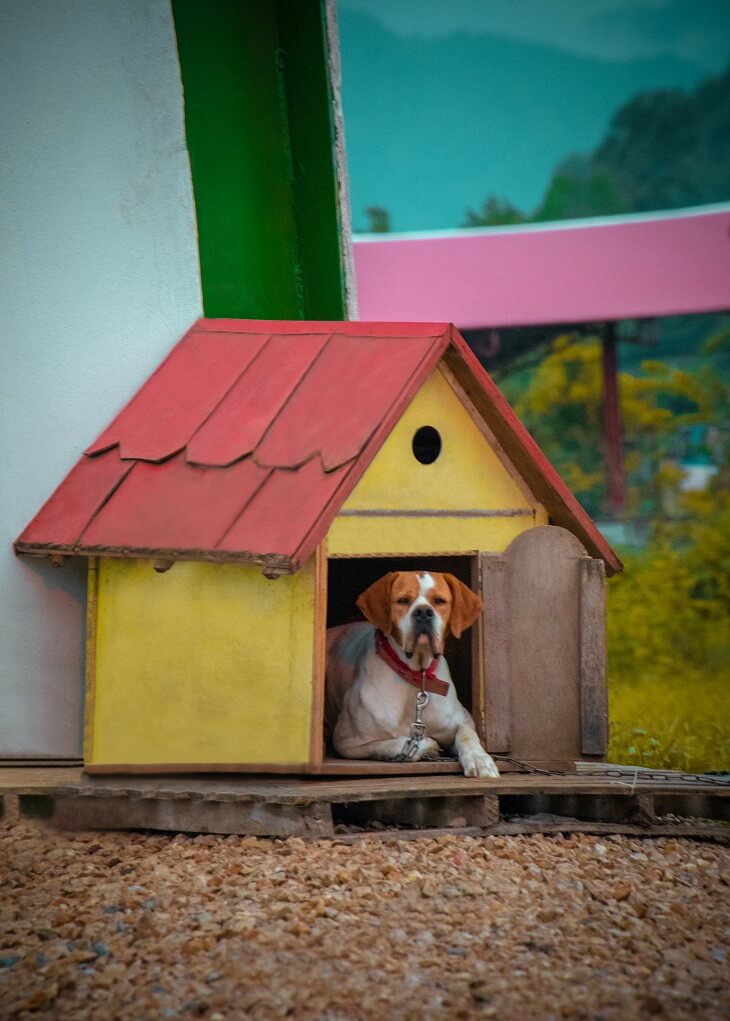Cover Image: James Barker
You’ve just adopted your first dog and are beyond excited to start your new life together. However, before diving in headfirst, you may want to consider some of the things you’ll encounter as a first-time dog owner. If you don’t prepare yourself beforehand, you may be in for some nasty surprises when unexpected issues arise—issues that could have been avoided had you known what to expect beforehand. Use this ultimate first-time dog owner’s guide to make sure you have everything covered before bringing home your new pup!
Things to Consider Before Getting a Dog
Making the decision to bring home a dog can be stressful and hard. Before you start looking for your new four-legged companion, it’s important to consider whether or not you’re ready for all of that responsibility. Are you in a stable living situation? Do you have time to give your dog attention? Will your schedule allow room for regular exercise, grooming, training, and medical care? If you don’t think now is a good time to add a dog into your life, that’s okay—there will always be another perfect moment in the future. In fact, some veterinarians even suggest waiting until kids are grown before adding a puppy or new pup into your home.

Things to Consider When Picking Your Breed
Choosing your first dog can be an exciting process, but it can also be daunting. Before choosing a breed, consider how much time you’ll have to dedicate to training and caring for your pet. Also, think about what your lifestyle will look like in a few years—if you want to travel or if you live in an apartment. Are there size restrictions at your place of residence? If so, make sure that your prospective dog won’t exceed those limits as they get older! And while the size and grooming requirements are important factors to consider when picking out a dog, don’t forget that all breeds are individuals.
What is Your Budget?
Dogs can cost hundreds of dollars a year to care for, and that doesn’t include their upfront adoption costs. It’s important to understand how much your dog will cost so you can plan accordingly. In general, two dogs can be expected to cost anywhere from $3,000 to $10,000 per year depending on their size and breed (and by extension, how much they eat), according to PetMD. Smaller dogs tend to cost less while larger dogs like Great Danes are more expensive both in terms of food and grooming needs. Plan your budget carefully before bringing home your furry friend!
How Big Do You Want Them To Get?
The easiest way to answer that question is, how big do you want them to get? Dogs of different breeds come in a wide range of sizes and shapes. If you’re thinking about getting a toy breed, such as a Yorkshire Terrier or a Chihuahua, be aware that they’ll remain tiny even when fully grown. If you have more space at home and in your heart for an oversized pooch like a Great Dane or an Irish Wolfhound, then know that these dogs can grow to over three feet tall and weigh up to 200 pounds! What breed are you interested in? Once you have an idea of what type of dog fits your lifestyle best, it will be easier to decide on what size would be ideal for your family.
Where Will They Sleep?
Have you considered what will happen to your dog when they aren’t with you? Leaving a pet in a crate or left out in an unfenced yard can make them feel isolated, insecure, and even dangerous. If you have to be away from home all day, consider renting an apartment or condo that has space for dogs inside. For example, RoverPass lets renters search over 700,000 vetted vacation rentals that allow pets; it’s free to list your property as well.

Select the Correct Food
Although high-quality food maybe expensive, ensuring that your dog receives the greatest components to be healthy and energetic necessitates selecting a food that meets his requirements. Some foods might create systemic allergies and other health issues, while others are specifically designed for dogs of various sizes and activity levels. If you’re not sure what kind of dog food is best for your pooch, see your veterinarian for advice depending on his age, size, and lifestyle. If your dog has allergies or other difficulties, It is recommended to shop at a local specialist store where personnel can help you find a nutrition solution that matches his needs.

Where Should You Adopt From?
When deciding to add a dog to your family, it can be difficult to decide where you should adopt it. There are many different places that you can choose from, but one of the most popular is your local animal shelter. Animal shelters house lost pets and pets whose families aren’t able to care for them anymore for various reasons. The goal of a pet shelter is to rehabilitate and find homes for these animals; however, if you’re looking for a certain breed or type of dog and don’t want an older dog, then adopting from an animal shelter might not be your best option. Many shelters have resources online that can help explain which breeds they have available, as well as information on their adoption process.
How Old Should They Be?
When it comes to puppies, keep in mind that a young dog has an increased chance of developing any number of life-threatening conditions. Talk to your vet about whether a puppy will be right for you and how old your new best friend should be when you adopt him or her. If your heart is set on getting a puppy, search for breeders who follow their dogs’ entire lives rather than just selling once they’ve reached an ideal age. Many reputable breeders won’t sell a puppy until it’s 8 weeks old—or sometimes even older—to ensure that their puppies are as healthy as possible when going to their forever homes.
Is Pet Insurance Worthwhile?
Getting pet insurance is a big commitment, and like most big commitments, it helps to know if you’re making a smart decision. Does it make sense for you and your dog? Here are two tips to help you decide:
1) Consider your breed of dog and its predisposition for certain ailments, and
2) Keep in mind that claims can cost as much as several thousand dollars. Does your budget allow for both paying for vet bills out-of-pocket and premiums over a year or so? Pet insurance should be considered carefully before signing up; any future claims may cause problems with insurability later on. Before you start looking into pet insurance, sit down with some pet insurance quotes so that you can see how much coverage will cost depending on your dog’s age and health.
Is It Possible to Have a Vet That Specializes In Small Animals?
Many pet owners find it hard to locate a good veterinarian that is trained in both large and small animals. If you are planning on getting a dog or any other type of animal, make sure that your vet has experience with larger dogs. You can easily determine if your veterinarian specializes in large animals by asking him/her what they use to sedate larger dogs. Many vets tend to have special chairs just for their bigger patients! Ask around, ask friends if they like their vet, and also look up other people’s reviews on Yelp! It is important for you as a potential first-time dog owner to educate yourself about proper care for your pet before making an appointment with a vet.













